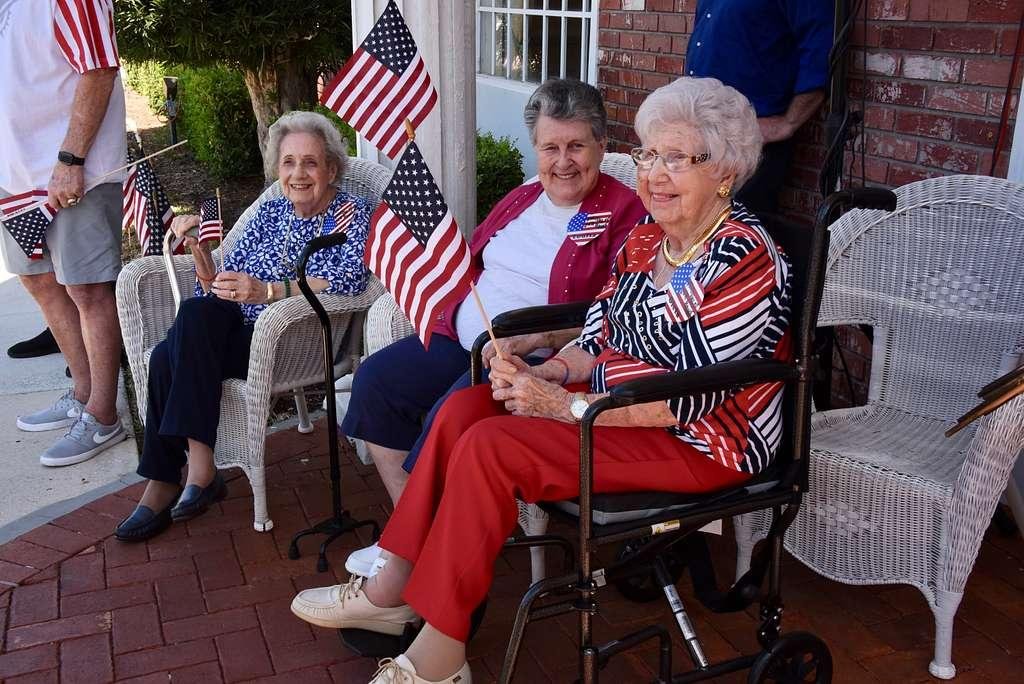Even though the number of veterans in the United States as a whole has gone down, the number of veterans using VA health care has gone up. VA pays for community care in the private sector that is given by non-VA providers. This is done so that as many qualified veterans as possible can get care as soon as possible. Concerns have been raised about the cost and standard of community care, but it has the potential to be a big help for veterans who have trouble getting to appointments and have to wait a long time. To make sure that veterans get the high-quality health care they need, policy and budget choices must be based on accurate data.
Community Care Services from the VA in Assisted Living and Nursing Homes
VA community care providers are doctors or nurses who help veterans as part of the VA’s community care program. This project aims to make it easier for veterans to get high-quality, affordable health care from doctors, nurses, and other medical workers in their own communities. Veterans and VA community care experts work together to give the best care possible, including specialized therapies that may not be offered in VA medical centers.
1. Therapies for Rehabilitation
Community care providers contracted with the VA are able to provide rehabilitation services to eligible veterans. Physical therapy, occupational therapy, and speech therapy are all examples of such interventions. Rehabilitative care is provided to service members to help them regain independence and improve their quality of life.
2. Mental Health Services
Veterans with mental health issues such as depression, anxiety, or PTSD can seek help from VA community care providers. They offer counseling, therapy, and other forms of support to help veterans deal with issues related to their mental health.
3. Administration of Drugs
Clinicians who work for VA community care help veterans keep track of their medicines and make sure they take them at the right times. They keep an eye on how the soldiers use their medications, look for dangerous drug interactions, and deal with any side effects that may happen.
4. Advice on Healthy Eating
Community care specialists linked with the VA can provide dietary counseling to veterans looking to improve their health and well-being. Meal planning, healthy eating habits, and any other nutritional concerns that may affect the veteran’s health are all discussed.
5. Humanitarian Aid
Veterans who are having personal, family, or financial challenges can seek the help of VA community care experts in the field of social work. Helping veterans find housing, financial aid, and job prospects among the complex web of social services is a primary focus.
What Does a Veterinary Social Worker Do?
A veterinarian social worker aids people in their interactions with pets and other animals as part of the veterinary team. Grief and sorrow, compassion fatigue, the link between human and animal cruelty, and animal-assisted therapies are four primary areas of concentration in veterinary social work. A veterinary social worker’s duties may include assisting both clients and employees in dealing with the emotional toll of making difficult end-of-life decisions.
Loss and Mourning in the Animal World:
If you or someone you know is grieving the loss of a pet, a veterinary social worker may be able to help. The social worker could advise pet owners on the best course of action by reviewing possible treatments and the pet’s expected quality of life. They can accompany pet owners before, during, and after an animal’s euthanasia and provide guidance on how to broach the subject with young children. A social worker may also be able to point pet owners in the direction of resources like bereavement groups for animals.
Stress and Conflict Resolution:
Due to the long average life expectancy of animals, veterinarians may see a high mortality rate among their patients. Additionally, they might see cases of neglect or animal abuse. Compassion fatigue, brought on by such experiences, might make it hard for professionals to maintain their emotional investment in their work.
Veterinary social workers can help their clients learn to cope with sorrow and stress. A social worker’s role may include mediating conflicts between clients and animal care professionals.
Tips for Pursuing a Career in Veterinary Social Work
There are rigorous standards you must satisfy to enter and succeed in the field of veterinary social work, just as there are in any other type of social work.
Get your Bachelor's in Social Work or another relevant degree in mental health
You’ll need to get your BSW or a degree in a similar field of mental health before you can enroll in veterinary social work graduate school. Depending on the institution, a bachelor’s degree in social work may be required, but a bachelor’s degree in the liberal arts (including electives in fields like psychology, sociology, anthropology, philosophy, and economics) may be accepted instead.
A veterinary social work school might not require a BSW, but having one could put you ahead of the competition. A Bachelor of Social Work degree provides students with the groundwork they’ll need to succeed in advanced studies.
Get some higher education.
A Master of Social Work (MSW) degree offers greater specialization than a Bachelor of Social Work (BSW). Concentrations, such as clinical and macro, may be available to those pursuing these graduate degrees. A veterinary social work focus or certificate is something to seek for if this field interests you.
An MSW may be necessary if you want to advance in your chosen field or move to a certain geographic area. This is crucial if you want or need to get your social worker’s license.
Get your social worker's license
You’ll need a social work license for most jobs dealing directly with people. A master’s degree in social work is typically necessary to become licensed in the field, though this varies by state. Some state social work boards have differentiated between multiple levels of licensure, each with its own set of prerequisites.
The minimum number of fieldwork hours necessary to apply for a social work license varies not only by state, but also by type of license being sought. It is recommended that you research the licensing and educational requirements in your state of choice.
Consider a Postgraduate Veterinary Social Work Certificate
You may choose to add a postgraduate certificate in veterinary social work to your degree programs. Continuing education may include completion of a certificate or post-graduate program in veterinary social work. Basic information on animal hospice care, veterinary care, and emotional support may all be part of your veterinary social work education. Euthanasia methods and pet owner support intervention are just two of the topics that might be covered in a certificate or advanced degree program. If you’re interested in becoming a veterinary social worker, this training can give you a leg up.
Conclusion
Transitional living facility caregiving for the Department of Veterans Affairs is a great way for veterans to be involved in helping their fellow service members. Veterans, as members of the community providing care, can play a crucial role in ensuring their comrades have access to It’s impohigh-quality medical care.
rtant to remember that the Veterans Health Administration’s (VHA) community care provider program is only one way they’re working to increase veterans’ access to quality medical care in every corner of the United States. Thus, veterans can help the larger movement to better the health care outcomes for veterans by becoming community care providers themselves. To become a VA community care provider in Florida, you must first apply for the proper state licenses and certifications and pass a background check through a service recognized by the FDLE.
So, if you’re a vet who wants to give back to the country in a significant way, you might want to look into the VA community care provider program. With your support, we can keep giving America’s warriors the best medical care possible.
Don’t put off until tomorrow what you can do today to start providing community care to Veterans Administration patients.







